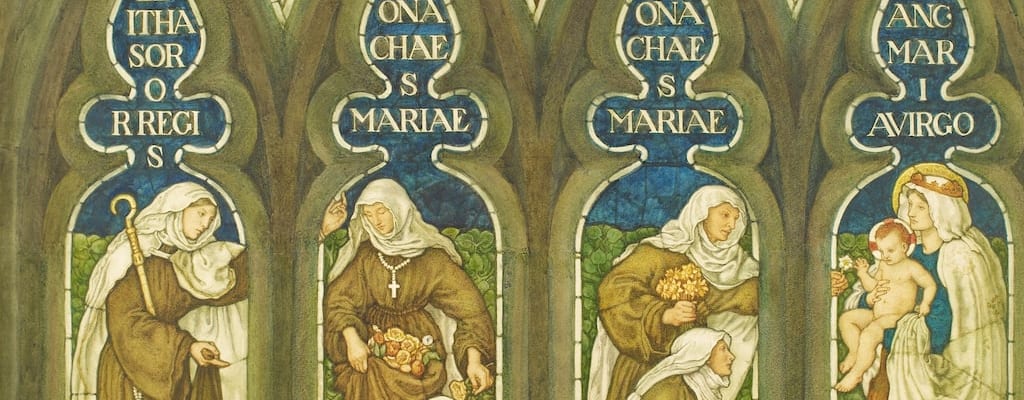take the veil: Idiom Meaning and Origin
What does ‘take the veil’ mean?
The idiom "take the veil" means to become a nun and commit to a life of religious seclusion.

Idiom Explorer
The idiom "take the plunge" means to take a significant and often risky step or action, especially when committing to something new or unknown.
The idiom "take the bait" means to fall for a trick or deception, often by reacting exactly as the trickster desires, thus becoming trapped or manipulated.
The idiom "take something to the grave" means to keep a secret or piece of information hidden for one's entire life, never revealing it to anyone, even on their deathbed.
The idiom "take out an onion" means to reveal or disclose information that is hidden or secret. It implies the act of peeling away layers, just as one peels an onion to unveil its layers. The idiom is often used in contexts where someone uncovers the truth or exposes hidden motives.
The idiom "take out" means to remove something or someone from a particular place or situation.
The idiom "take one's leave" means to say goodbye or depart from a place or a person.
The idiom "take one's hook" means to leave or depart, often in a sneaky or secretive manner. It conveys the idea of someone quietly removing themselves from a situation or place.
The idiom "take one's hat off to" means to show admiration or respect for someone's achievement or actions.
The idiom "take on" means to assume responsibility or an undertaking. It can also mean to confront or challenge someone or something.
Unveiling Secrets
Take the veil, an idiom with a rich history, has multiple meanings and uses. It is often used to describe someone entering a religious order and committing to a life of celibacy, as symbolized by taking vows and wearing a veil. This idiom can also metaphorically suggest someone withdrawing from the world or becoming secluded or isolated. Additionally, it can refer to a person's decision to keep a secret or withhold information, often involving deception or concealment.
The origins of the idiom "take the veil" can be traced back to medieval times and the traditions of Christian monasticism. When individuals chose to become monks or nuns, they would take religious vows, including vows of chastity, poverty, and obedience. As a physical representation of their commitment to a life of celibacy, members of religious orders would wear a veil or habit, which covered their heads and bodies.
Metaphorically, "taking the veil" expanded beyond its religious origins to describe individuals who withdraw from society or isolate themselves from others. This interpretation suggests a voluntary retreat from the world, often with a sense of solemnity or secrecy. It conveys the idea of stepping away or stepping back from social interactions, responsibilities, or worldly affairs, embracing seclusion and solitude.
Furthermore, the idiom "take the veil" has an additional figurative meaning related to keeping secrets or withholding information. In this sense, it implies a deliberate act of concealment, similar to hiding behind a veil, preventing others from seeing the truth. This usage often implies a level of deception, as someone intentionally hides important information or a hidden motive.
In contemporary usage, "take the veil" is still employed in all its established senses. Whether referring to a person joining a religious order, secluding themselves from society, or keeping secrets, it serves as a versatile idiom with rich connotations. Though it is rooted in historical and religious contexts, its figurative meanings continue to be relevant in our modern society.
The idiom "take the veil" shares a connection with the idiom "dance of the seven veils." The "dance of the seven veils" originated from the biblical story of Salome, who performed a sensual dance for King Herod. The dance involved Salome gradually removing seven veils, symbolizing the layers of illusion and deception. Similarly, "taking the veil" implies the concealment of truth or secrets, suggesting a deeper meaning beneath the surface.
Another related idiom is "take cover." "Take cover" is commonly used to describe seeking protection or shelter from danger or harm. In this context, the idiom shares a connection with "taking the veil" as both involve seeking safety or refuge. While "take cover" implies physical protection, "taking the veil" signifies a retreat from the world to find solace or sanctuary within oneself or within a religious order.
To summarize, "take the veil" is a versatile idiom rooted in religious and historical contexts. It encompasses the act of entering a religious order, withdrawing from society, and keeping secrets. It captures the concepts of transition, transformation, and the relinquishment of worldly concerns. With its various meanings and connections to idioms like "dance of the seven veils" and "take cover," "taking the veil" provides a fascinating exploration of human nature and our perpetual search for understanding and self-discovery.
Example usage
Examples:
1. After years of partying, she decided to take the veil and enter the monastery.
2. The young woman had always dreamed of taking the veil and becoming a nun.
3. When Mary discovered her true calling, she made the decision to take the veil and devote her life to God.
More "Religion" idioms



